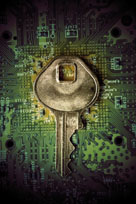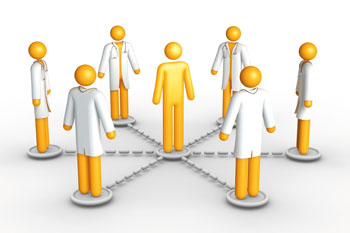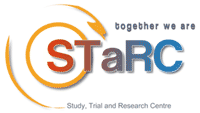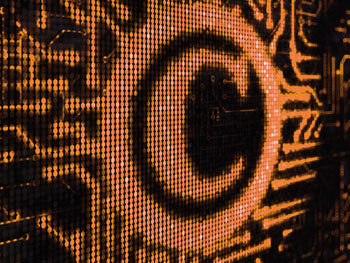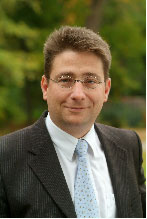
|
|
|
In this Issue
Some Other Links
|
|
|
Editorial ACGT is working onto an integrated approach over Clinical Trials on clinic-Genomics, proposing models for defining the protocols, preparing the ground for vast possibilities for clinicians to assess diagnosis and treatment results against already existing data repositories. As the number of clinical trials sees a general decline in Europe due to the heavy costs and legal constraints, ACGT can assist oncologists into getting out of isolation, assisting in increasing the number of collaborations between practitioners. ACGT provides a platform for the patients to enter their data on a daily base so that practitioners can make a daily monitoring. These advances in telemedicine available in the ACGT platform will enhance the capacity of the oncology community in getting further into trials, allowing therefore the patients to receive the most adapted treatments, care and attentions. We wish you a pleasant reading through the articles. Samuel Keuchkerian, HealthGrid Clinical Trials Gene Signatures Identifies Breast Cancer Patients who will Respond to Chemotherapy
Finding ways to tailor therapy to the characteristics of individual patients is an important area of cancer research. The recent results from the TOP trial, one of the clinico-genomic trials serving as a pilot trial in ACGT, shows that this goal can be achieved by developing more sophisticated ways to use older drugs.
Led by the Institut Jules Bordet, researchers in Belgium, France, Luxembourg and Italy collaborated to study 149 women with breast cancer who were being treated with epirubicin, an anthracycline drug with a long history of use in many tumour types, but especially in breast cancer.
Although anthracycline drugs are among the most effective chemotherapies in breast cancer, a small proportion of women suffer severe side-effects that include congestive heart failure. By identifying those women who are most likely to benefit from treatment, doctors may be able to ensure fewer women are unnecessarily exposed to that risk.
Products and Services Secure Integration of Third Party Services into ACGT PlatformIntroduction - Legal and Security requirementsOne of the most important constraints for the management of personal clinical and genomic data is the compliance to the ethical and legal data protection requirements. In ACGT a generic data protection framework has been defined which is based on a technical security infrastructure as well as on organizational measures and contractual obligations. Most of the technical requirements are dealt with the Grid infrastructure layer (GSI), which supports user authentication through digital signatures and also the delegation of user privileges to a service so that it can retrieve data or perform an action on the user’s behalf and without the user’s intervention.
Apart from the security requirements, the need in ACGT for a standard workflow definition language lead to BPEL, from the business process management world, as the most prominent and well supported technology. Nevertheless, the choice of BPEL gave rise to more requirements and challenges. The first one is the provision of a user friendly workflow authoring environment. The second relates to the need for an infrastructure that would make possible the invocation of the ACGT secure grid services from inside the BPEL-based workflows, since BPEL and the Web Services standard security specifications do not deal with such requirements. Another major challenge comes from the wish to integrate into BPEL workflows non-ACGT services, which is by itself a complex technological task in many aspects, let alone the challenges due to the legal and security requirements.
Grid news Cancer Knowledge Cloud for a New Generation of MedicineThinking BIGKen Buetow thinks BIG. He envisions what he calls a Cancer Knowledge Cloud ― an IT environment designed to foster information connectivity among cancer patients, cancer researchers and clinical care providers. This environment, powered by caBIG ((cancer Biomedical Informatics Grid) ) tools and infrastructure, would enable a continuous and accelerated cycle of discovery, diagnostic and pharmaceutical product development, and improved clinical care.
Cancer care and research still operate on a linear, slow and cost-ineffective 20th-century model that fails to capture the value of clinical data, according to Buetow. He outlined the traditional model’s four sequential steps as discovery, product development, clinical care and outcomes. The discovery phase, he says, suffers from difficulty in accessing clinical outcomes data as well as high quality biospecimens. “Siloed” information and a lack of standing infrastructure for clinical trials hamper product development, and actual clinical outcomes are not captured systematically to further inform discovery research processes.
Feature article Clinical Need for Exploitation of ACGT
Clinical trials are essential to achieve better treatments for patients. As a result of the Clinical Trials Directive 2001/20/EC the conduct of clinical trials throughout Europe has changed,. The directive, aimed largely at holding pharmaceutical companies to higher standards, has tied up academic clinical research, particularly large trials, with redundant paperwork, liability tangles and unending bureaucracy. Scenarios and structures that help to run more clinical trials and to bridge the gab between clinical and basic research is of utmost importance. The following problems in clinical care of patients do exist today:
[…] Commmunity view HOPE (HOspital Platform for E-health)
The goal was to deploy a web platform using grid technolgies to support broad access to rapid, cost-effective and high quality healthcare. Such platform, named HOPE, create an environment where data of medical interest can be stored, processed and made easily available to the different actors of healthcare: physicians, medical physicists, healthcare administrations and, of course, citizens.
The HOPE prototype platform was designed to enable telemedicine and calculations in a grid environment. The sharing of knowledge and the exchange of diagnosis between physicians contribute to the improvement of the standard of medical knowledge, particularly in developing countries. Special care has been given to the design of a user-friendly interface dedicated to any medical speciality on the basis of feedback from healthcare professionals. The goal was to create a natural workflow that will enable easy searching, adding, updating, sharing and discussing clinical exams and their attached images. Events MICCAI, International Conference on Medical Image Computing and Computer Assisted InterventionSeptember 20-24, London
MICCAI 2009, the 12th International Conference on Medical Image Computing and Computer Assisted Intervention, will be held from 20th to 24th September 2009 in London, UK. MICCAI attracts annually world leading scientists, engineers and clinicians from a wide range of disciplines associated with medical imaging and computer assisted surgery. Topics to be addressed in MICCAI 2009 include, but are not limited to:
Legal and Ethical Intellectual Property Rights
Intellectual property rights, mainly copyrights and patents are an important success factor for ACGT. They can be relevant incentives for research but might also hinder technical developments and patient commitment. They are of specific importance as ACGT sees itself as an open source/open content initiative. Copyrights are the most relevant legal tools to protect components of ACGT such as computer software developed and the GRID-infrastructure. They grant, generally speaking, protection for the expression of a work from moment of its creation for 70 years based on the assessment of the originality criteria.
In ACGT the partners have been developping a number of computer software (applications). It is often said that computer software posses a “hybrid” nature which means they have some elements of expression and others of functionality. Their means of protection lies under the copyright framework, thus, the originality and creativity criteria in their creation or adaptation is the decisive factor to determine their protection. The GRID infrastructure developed in ACGT is made of a cluster of different interconnected resources networks which allow the users to execute a variety of applications such as those useful for scientific research or data management. They contain a number of layers, therefore the way they are selected and arranged on The GRID may also be subject to copyright protection.
Life in ACGT ACGT Annual ReviewThe Annual ACGT project review took place in Bohn, Germany with the presence of most ACGT partners, the EC desk officer (Sweden) and 3 reviewers. The review, while being a formal assessment of the projects developments, was the opportunity to confront the project strategies and technological developments to the views of the EC onto clinical research onto Cancer and onto large health related infrastructures related to the grid technologies. Project members demonstrated the different services and tools that were developed to date, showing the potential of the different tools that will assist the oncology community in developing treatment protocols, follow up patients and patient related data, development of the ACGT ontology MO. We thank all the persons who participated and made sure that the demonstrations could be ready on time to discuss with the representatives of the EC but special thanks goes to the persons who organized the event, allowing us to work in a very favorable environment. People in ACGT Rémi Ronchaud
In his role of ACGT Coordinator on behalf of ERCIM, Rémi is responsible for the project as a whole and supervises the administrative and financial coordination of activities in this large scale Integrated Project. Rémi Ronchaud graduated in 1997 at E.S.S.E.C. (Ecole Superieure des Sciences Economiques et Commerciales) in Paris, France. He obtained his MBA in Strategy and Management while studying in Warwick University in 1998. He joined ERCIM in June 2000, and has successfully managed several IST initiatives across European Framework Programmes 5, 6 and 7. He also acts as ERCIM’s European Relations Manager while coordinating ACGT in cooperation with Manolis Tsiknakis (FORTH) who ensures scientific coordination of the project. Nikolaus Forgó
Prof. Dr. Nikolaus Forgó studied law, philosophy and linguistics in Vienna and Paris. In 1997 he finished his Dr. iur. (Dissertation in legal theory). Between the years 1990-2000 he was Assistant Professorat the University of Vienna (Austria). Since 2000 he is full Professor for Legal Informatics and IT-Law at the University of Hanover and since 2007 co-head of the IRI. He publishes, teaches and consults on national and international level in all fields of IT-law, mainly data protection, data security and copyright. |
|
|
|
|
|

